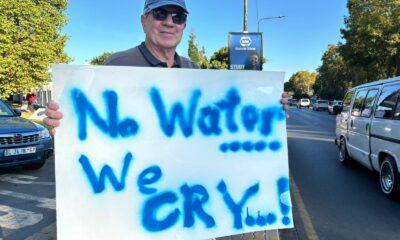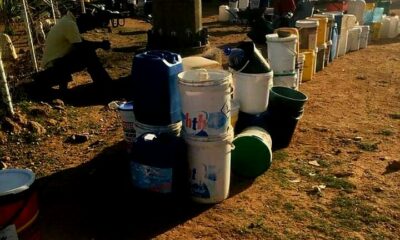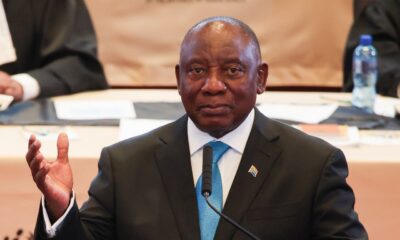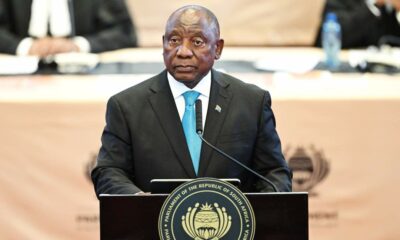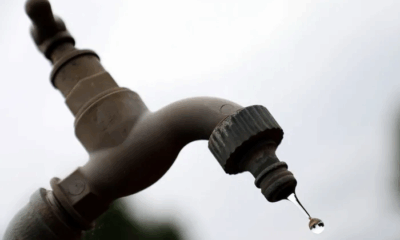News
‘Water is Life and Ours Is Being Stolen’: Mashatile Lays Bare Deep Rot Behind South Africa’s Water Crisis
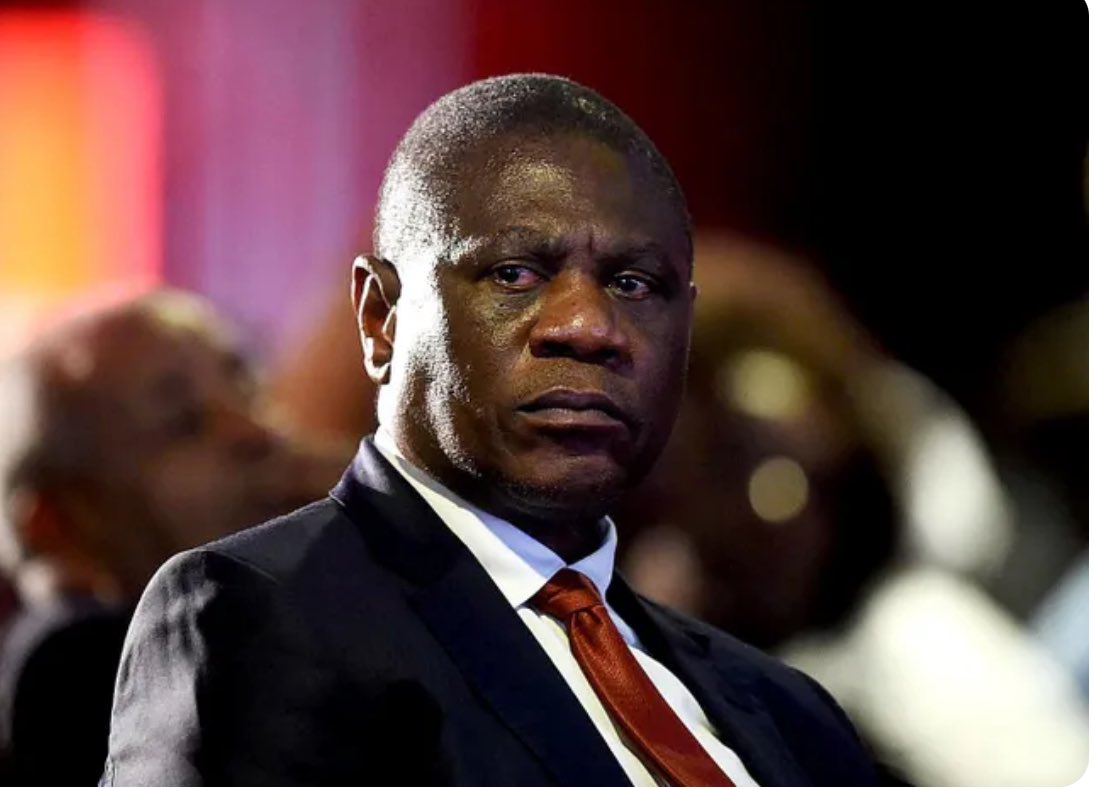
‘Water is Life and Ours Is Being Stolen’: Mashatile Lays Bare Deep Rot Behind South Africa’s Water Crisis
For many South Africans, running water has become a luxury, a privilege that flickers on and off like load shedding used to. Across the country, communities queue with buckets, chase water tankers at dawn, and stage protests in scorching heat, desperate for answers.
This week, Deputy President Paul Mashatile finally gave a blunt one.
Speaking during a National Council of Provinces (NCOP) session in Cape Town, Mashatile didn’t sugar-coat the crisis: years of municipal mismanagement, corruption, failing infrastructure, and criminal networks have choked the country’s water supply.
And while his remarks were triggered by a question about public-private partnerships, they quickly became a broader indictment of a system that has been failing households for years.
A Crisis Years in the Making
Mashatile acknowledged what ordinary people have long known: the country’s water crisis didn’t appear overnight. It’s been gathering like a slow, relentless drought, one broken pump, one looted budget, one neglected pipeline at a time.
“Many of our municipalities are grappling with challenges related to the provision of water and sanitation due to poor governance, lack of technical capacity, inadequate investment, poor maintenance and financial mismanagement,” he told the NCOP.
Behind the formal language lies a simple truth: many municipalities no longer have the skills, money or governance structures needed to keep taps running.
According to data from the Department of Water and Sanitation, the national average for water-supply reliability has plummeted to 68%, and water quality is deteriorating in nearly 60% of supply systems.
For millions, that data is not a statistic, it’s their daily reality.
The Water-Tanker Cartel Problem
Mashatile also addressed a topic that has dominated community WhatsApp groups and radio call-ins: the alleged “water-tanker mafias”.
He said National Treasury has warned municipalities not to rely on water tankers as a long-term solution calling them what communities already believe they are: a breeding ground for corruption, inflated contracts and criminal syndicates.
Tankers were designed for emergencies. Today, in some municipalities, they’re the entire water plan.
Mashatile acknowledged that criminality is thriving in this space and called on the public to report suspicious activities and defend infrastructure from sabotage.
Government’s Proposed Fix: A More Coordinated, Investment-Led Approach
In response to the crisis, Mashatile highlighted a series of initiatives aimed at resuscitating the country’s water systems:
1. The Water Task Team
A coordinated approach to shore up water security by:
-
upgrading failing infrastructure
-
reforming weak institutions
-
speeding up project implementation
2. Outcomes from the Water and Sanitation Indaba
Earlier this year, experts urged:
-
diversified financing
-
long-term sustainability models
-
increased investment across the sector
3. The Water Partnership Office
Based at the Development Bank of Southern Africa, this office is helping municipalities structure bankable projects for private-sector investment.
One example is the Olifants River Management Model Programme in Limpopo a 50/50 partnership between government and mining houses to deliver bulk raw water for communities and economic development.
4. Blended Finance for the Future
Mashatile said more blended-finance projects will roll out over the next three years through partnerships between the Department of Water and Sanitation, water boards and the Infrastructure Fund.
Public Reaction: ‘We’ve Heard Promises Before’
On social media, reactions were mixed.
Some welcomed Mashatile’s frankness, saying it’s rare for a senior official to openly acknowledge corruption and decay within municipalities.
Others dismissed the comments as “too little, too late”, pointing out that communities have been raising these issues for years without meaningful change.
In places like Hammanskraal, Giyani, and parts of Nelson Mandela Bay, where water shortages have become part of the weekly routine residents are asking a simple question: When will words turn into water?
A Fresh Interpretation: The Real Fight Is Against Ghost Governance
Beyond the pipes and pumps, the crisis is really a governance story.
Municipal systems in many parts of the country have hollowed out, technically, financially and ethically. Skilled engineers have left. Maintenance budgets have been raided. Infrastructure has aged without replacement.
Mashatile’s comments signal a shift: the government is no longer pretending the system merely needs “support”. It needs rebuilding with communities, private partners and new oversight structures all playing a role.
Mashatile’s remarks were more than political theatre, they were an admission that South Africa’s water crisis is man-made, fuelled by negligence and corruption, and worsened by criminal elements.
Whether the government can stamp out the rot and rebuild a reliable water network remains to be seen. But for the millions living on the brink of water poverty, action can’t wait another season.
Until the fixes arrive, the country’s most urgent question remains painfully simple:
When will every South African have the basic dignity of clean, reliable water?
{Source: IOL}
Follow Joburg ETC on Facebook, Twitter , TikTok and Instagram
For more News in Johannesburg, visit joburgetc.com



